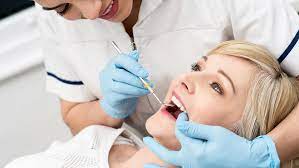Introduction
North York First Aid offers comprehensive training in first aid and cardiopulmonary resuscitation (CPR) techniques. Understanding the importance of this training, the content covered in courses, and the advantages of completing the training is essential for individuals seeking to enhance their lifesaving skills to get North York First Aid.
Understanding First Aid
Basics of First Aid
In North York First Aid courses, participants learn the fundamental principles of first aid, including how to conduct an initial assessment of an emergency situation and provide basic life support techniques such as maintaining an open airway and controlling bleeding.
Common First Aid Procedures
Participants are trained in a variety of common first aid procedures, such as wound care to prevent infection and promote healing, as well as fracture management techniques to stabilize injuries and minimize further damage.
Medical Emergency Response
Recognizing symptoms of medical emergencies such as heart attacks, strokes, and allergic reactions is crucial for prompt intervention. Participants also learn how to administer medications such as epinephrine for severe allergic reactions.
CPR/AED Training
Cardiopulmonary Resuscitation (CPR)
CPR training focuses on teaching participants effective chest compression techniques to maintain blood circulation in individuals experiencing cardiac arrest. Rescue breathing methods are also covered to provide oxygen to the lungs.
Automated External Defibrillator (AED) Usage
Participants are instructed on how to properly operate automated external defibrillators (AEDs), including attaching electrode pads and delivering a shock to restore normal heart rhythm in cases of sudden cardiac arrest.
Hands-On Practice
Hands-on practice sessions allow participants to apply CPR and AED techniques in simulated scenarios. These exercises enhance skills and confidence in responding effectively to real-life emergencies.
Course Options and Certification
Available Course Varieties
North York First Aid offers a range of course options, including standard first aid & CPR/AED courses that cover comprehensive first aid and CPR/AED techniques, as well as emergency first aid & CPR/AED courses that focus on basic skills for immediate response.
Certification Process
Upon completing the course and passing the examination, participants receive certification that is valid for a specified period. Certification demonstrates proficiency in first aid and CPR/AED skills and may be required for certain professions or volunteer roles.
Recertification
Recertification is necessary to ensure that individuals maintain their skills and stay updated on the latest guidelines and techniques. Refresher courses provide an opportunity to review and reinforce knowledge and skills learned during initial training.
Conclusion
Enrolling in North York First Aid & CPR/AED courses is a proactive step towards acquiring lifesaving skills and being prepared to respond to emergencies effectively. By completing training and obtaining certification, individuals demonstrate their commitment to promoting safety and well-being in their communities.








Leave a Reply